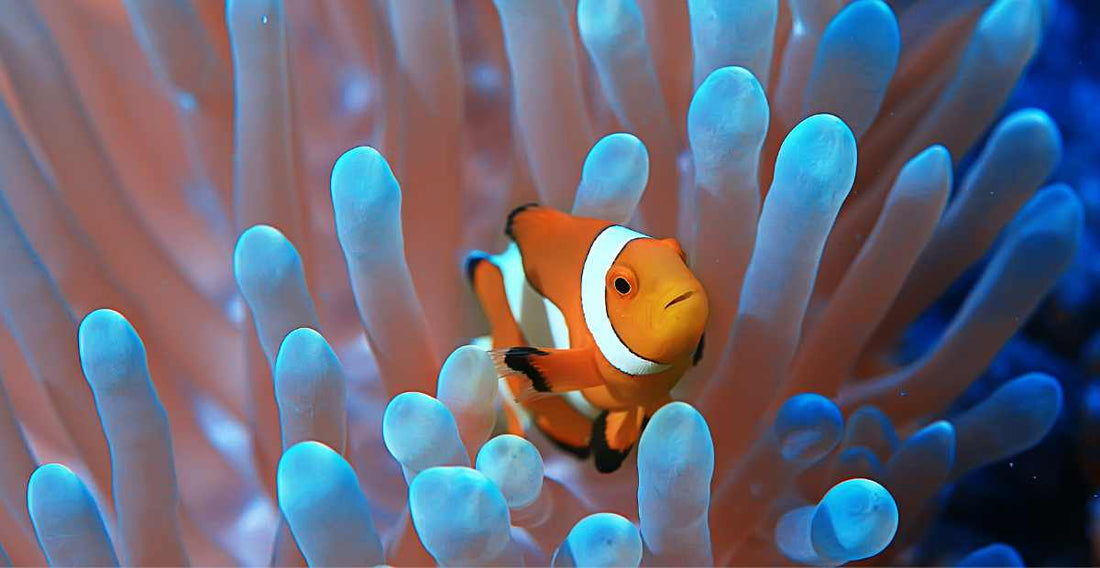
Costa Rica Coral Reefs: Marine Biodiversity and Threats
BY NAMUBAKShare
The coral reefs They are essential for marine biodiversity and ocean health. These ecosystems not only beautify the sea but also provide numerous environmental and economic benefits. In this guide, we'll explore the importance, threats, and conservation measures of coral reefs, with a special focus on Costa Rica.

Importance of Coral Reefs
Function of Coral Reefs
The reefs They act as natural barriers that protect coasts from erosion and storms. They are also crucial habitats for many marine species, providing food and shelter. Without these formations, many coastal areas would be much more vulnerable to the devastating effects of storms and rising sea levels.

Coral Reef Ecosystem
He coral reef ecosystem It is one of the most diverse on the planet. It ranges from small invertebrates to large predators, all interconnected in a complex ecological web. Corals themselves, although they look like plants or rocks, are actually colonies of tiny animals called polyps. polyps They build calcium carbonate skeletons that form the structures we know as coral reefs.
Threats to Coral Reefs
Polluted Coral Reefs
The pollution It is one of the main threats to these ecosystems. Plastics, chemicals, and sediments can suffocate corals and disrupt the reef's ecological balance. In many areas, pollution comes from land-based sources, such as agriculture and industry, which release nutrients and toxins into rivers that eventually reach the sea.
What Happens If Coral Reefs Disappear
If the reefs If these species were to disappear, not only would crucial habitat for many marine species be lost, but natural protections against storms and coastal erosion would also be reduced. This would impact human communities and the local economy, especially those that depend on tourism and fishing.

Coral Reef Conservation
Protective Measures in Costa Rica
Costa Rica has implemented several measures to protect its coral reefs. These include strict regulations on fishing, tourism, and pollution. Coordination between multiple ministries, such as the Ministry of Environment and Energy, the Ministry of Livestock and Agriculture, and the Costa Rican Institute of Fisheries and Aquaculture, is key to the effective conservation of these ecosystems.
Costa Rica Coral Reef: Legislation and Protection
The reefs in Costa Rica They are protected by national laws that prohibit harmful activities such as coral extraction, waste dumping, and destructive fishing practices. These laws seek to ensure that future generations can enjoy these natural treasures. Costa Rica has also designated several marine protected areas to safeguard coral reefs and their associated ecosystems.

Flora and Fauna in Coral Reefs
Animals that Live in Coral Reefs
These ecosystems are home to a vast variety of animals, including fish, crustaceans, and mollusks. Iconic species such as clownfish, sea turtles, and reef sharks depend on these habitats for their survival. The diversity of life in coral reefs is unparalleled, making these ecosystems a hotspot of marine biodiversity.

Economic and Social Impact of Coral Reefs
Tourism and Recreation
The reef ecosystems attract millions of tourists each year. Activities such as diving, snorkeling, and recreational fishing generate significant income for local economies. ecotourism reef-based provides jobs and supports coastal communities.

Fishing
The coral reefs They are essential for fisheries, as many commercial fish depend on them at some stage of their life cycle. Sustainable fishing in these areas is vital to the food security of many coastal communities.
Coral Reef Education and Awareness
Educational Programs
It is crucial to educate the public about the importance of these coral ecosystems and how they can contribute to their conservation. Educational programs in schools and communities can raise awareness and promote sustainable practices.
Conservation Initiatives
Various non-governmental organizations and government agencies are working on conservation initiatives to protect reefs. A clear example of an NGO working on this type of initiative is The Clean Wave which include reef restoration and scientific research, from marine species such as the bull shark to the creation of Coral Gardens.

Future of Coral Reefs
Challenges and Opportunities
The future of the reefs It depends on our ability to address current challenges, such as climate change and pollution. At the same time, there are opportunities to develop new technologies and approaches for the conservation of these vital ecosystems.
Community Participation
The participation of local communities is essential to the success of conservation efforts. Programs that involve communities in the management and protection of coral reefs can significantly improve conservation outcomes.
The reefs They are critical to the health of our oceans and the well-being of coastal communities. It is important that we continue conservation and education efforts to protect these ecosystems. With cooperation and concerted action, we can ensure that these ecosystems continue to thrive for future generations.

